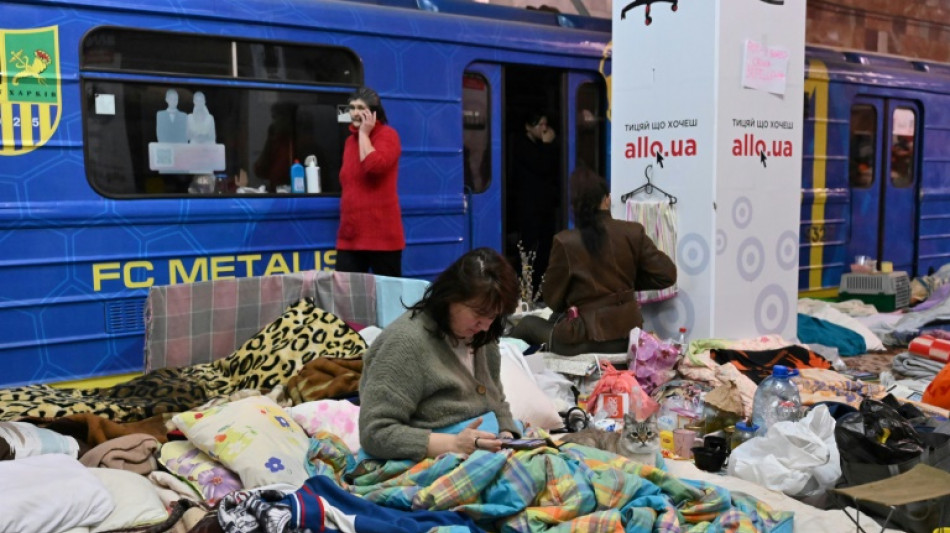
-
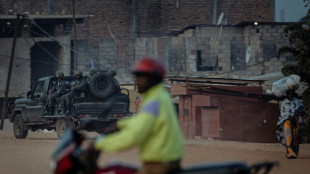 M23 militia says to pull out of key DR Congo city at US's request
M23 militia says to pull out of key DR Congo city at US's request
-
Thousands of glaciers to melt each year by mid-century: study
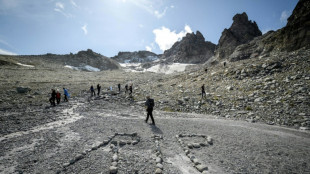
-
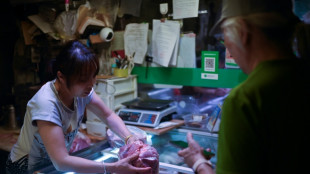 China to impose anti-dumping duties on EU pork for five years
China to impose anti-dumping duties on EU pork for five years
-
Nepal starts tiger census to track recovery
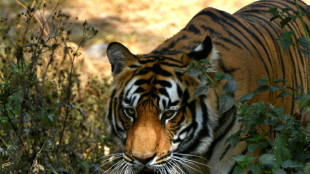
-
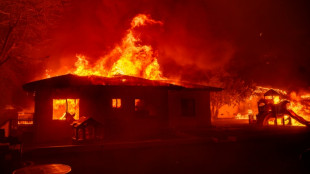 Economic losses from natural disasters down by a third in 2025: Swiss Re
Economic losses from natural disasters down by a third in 2025: Swiss Re
-
Indonesians reeling from flood devastation plea for global help
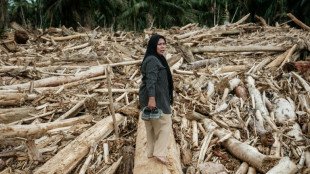
-
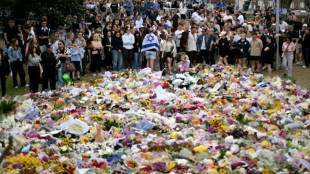 Timeline: How the Bondi Beach mass shooting unfolded
Timeline: How the Bondi Beach mass shooting unfolded
-
On the campaign trail in a tug-of-war Myanmar town
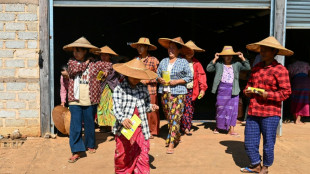
-
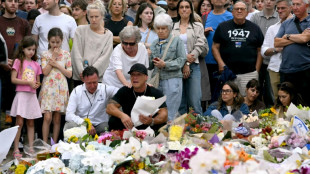 Bondi Beach suspect visited Philippines on Indian passport
Bondi Beach suspect visited Philippines on Indian passport
-
Kenyan girls still afflicted by genital mutilation years after ban
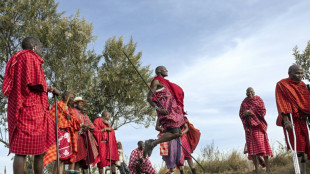
-
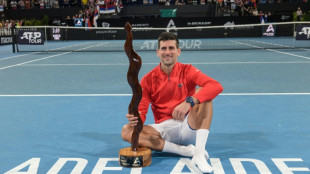 Djokovic to warm up for Australian Open in Adelaide
Djokovic to warm up for Australian Open in Adelaide
-
Man bailed for fire protest on track at Hong Kong's richest horse race

-
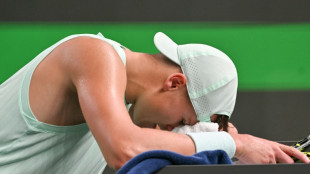 Men's ATP tennis to apply extreme heat rule from 2026
Men's ATP tennis to apply extreme heat rule from 2026
-
10-year-old girl, Holocaust survivors among Bondi Beach dead
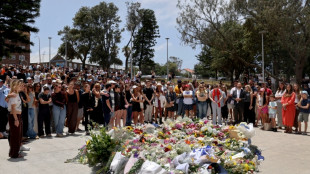
-
 Steelers edge towards NFL playoffs as Dolphins eliminated
Steelers edge towards NFL playoffs as Dolphins eliminated
-
Australian PM says 'Islamic State ideology' drove Bondi Beach gunmen
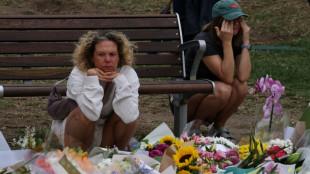
-
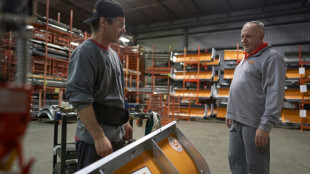 Canada plow-maker can't clear path through Trump tariffs
Canada plow-maker can't clear path through Trump tariffs
-
Bank of Japan expected to hike rates to 30-year high

-
 Cunningham leads Pistons past Celtics
Cunningham leads Pistons past Celtics
-
Stokes tells England to 'show a bit of dog' in must-win Adelaide Test
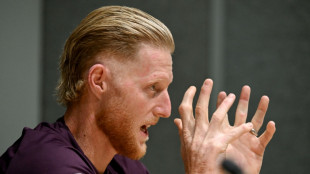
-
 EU to unveil plan to tackle housing crisis
EU to unveil plan to tackle housing crisis
-
EU set to scrap 2035 combustion-engine ban in car industry boost
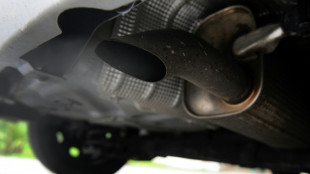
-
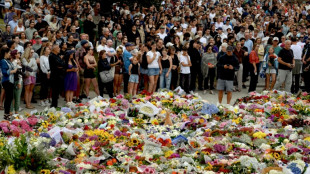 Australian PM visits Bondi Beach hero in hospital
Australian PM visits Bondi Beach hero in hospital
-
'Easiest scam in the world': Musicians sound alarm over AI impersonators
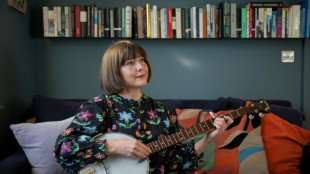
-
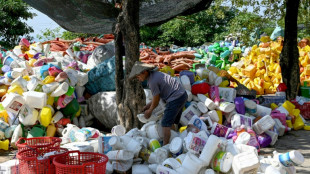 'Waiting to die': the dirty business of recycling in Vietnam
'Waiting to die': the dirty business of recycling in Vietnam
-
Asian markets retreat ahead of US jobs as tech worries weigh
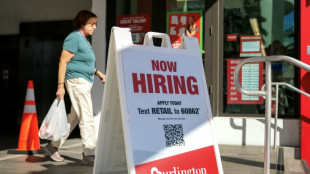
-
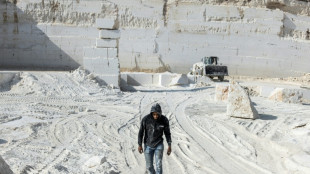 Famed Jerusalem stone still sells despite West Bank economic woes
Famed Jerusalem stone still sells despite West Bank economic woes
-
Trump sues BBC for $10 billion over documentary speech edit
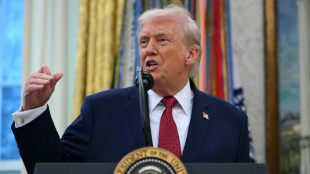
-
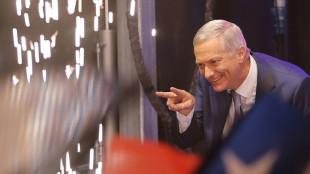 Chile follows Latin American neighbors in lurching right
Chile follows Latin American neighbors in lurching right
-
Will OpenAI be the next tech giant or next Netscape?

-
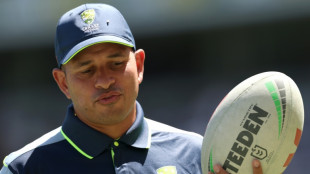 Khawaja left out as Australia's Cummins, Lyon back for 3rd Ashes Test
Khawaja left out as Australia's Cummins, Lyon back for 3rd Ashes Test
-
Australia PM says 'Islamic State ideology' drove Bondi Beach shooters
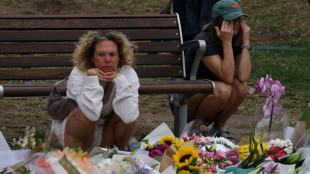
-
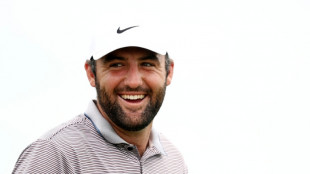 Scheffler wins fourth straight PGA Tour Player of the Year
Scheffler wins fourth straight PGA Tour Player of the Year
-
New APAC Partnership with Matter Brings Market Logic Software's Always-On Insights Solutions to Local Brand and Experience Leaders

-
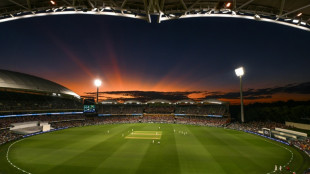 Security beefed up for Ashes Test after Bondi shooting
Security beefed up for Ashes Test after Bondi shooting
-
Wembanyama blocking Knicks path in NBA Cup final
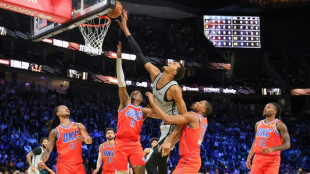
-
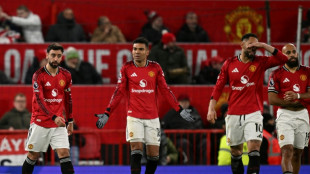 Amorim seeks clinical Man Utd after 'crazy' Bournemouth clash
Amorim seeks clinical Man Utd after 'crazy' Bournemouth clash
-
Man Utd blow lead three times in 4-4 Bournemouth thriller
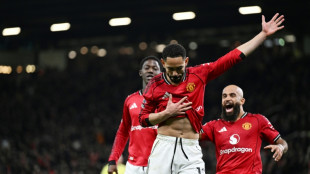
-
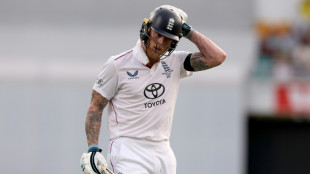 Stokes calls on England to 'show a bit of dog' in must-win Adelaide Test
Stokes calls on England to 'show a bit of dog' in must-win Adelaide Test
-
Trump 'considering' push to reclassify marijuana as less dangerous

-
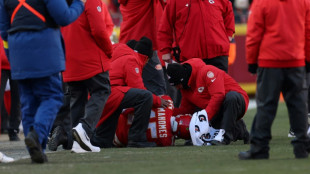 Chiefs coach Reid backing Mahomes recovery after knee injury
Chiefs coach Reid backing Mahomes recovery after knee injury
-
Trump says Ukraine deal close, Europe proposes peace force
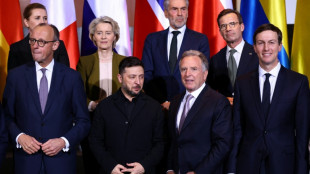
-
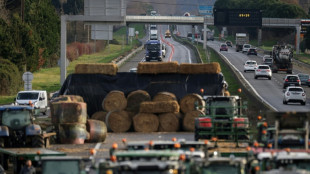 French minister urges angry farmers to trust cow culls, vaccines
French minister urges angry farmers to trust cow culls, vaccines
-
Angelina Jolie reveals mastectomy scars in Time France magazine

-
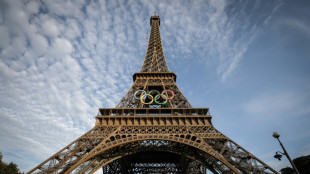 Paris Olympics, Paralympics 'net cost' drops to 2.8bn euros: think tank
Paris Olympics, Paralympics 'net cost' drops to 2.8bn euros: think tank
-
Chile president-elect dials down right-wing rhetoric, vows unity
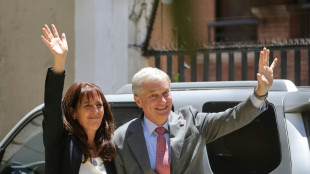
-
 Five Rob Reiner films that rocked, romanced and riveted
Five Rob Reiner films that rocked, romanced and riveted
-
Rob Reiner: Hollywood giant and political activist

-
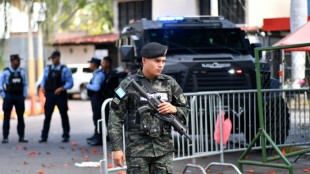 Observers say Honduran election fair, but urge faster count
Observers say Honduran election fair, but urge faster count
-
Europe proposes Ukraine peace force as Zelensky hails 'real progress' with US


In Kharkiv's metro, families carve out a life away from the bombs
When Russian troops steamrolled through her east Ukrainian village in February, Elena Ivanovna's family packed their car before dawn and fled to Kharkiv, where they unwittingly found themselves on the front line.
Ukraine's second city has been pummelled by strikes day and night since Russian forces attempted to seize it at the start of the invasion.
The bitter fighting has rendered the city of 1.5 million a tangle of blown-out shops and smouldering apartment blocks, and forced families like Ivanovna's underground where they are sheltering in the metro.
"We thought that here (in Kharkiv) we would find salvation, but it became the front line. Helicopters and planes were bombing the city. So we decided to come to the metro," the 40-year-old kindergarten teacher said.
On February 24, the night of the invasion, Ivanovna and her family were asleep in their village Lyptsi, just 10 kilometres (six miles) from the Russian border.
"We woke at 4:30 in the morning... even the children woke and immediately realised that this was war," she said.
"Through the window, we could see that everything was on fire, our house was shaking."
Ivanovna, her husband and their children, aged eight, 10 and 17, dressed quickly, grabbed a handful of belongings and initially took refuge in their own basement.
"After 15 minutes, it got quieter, so we ran to our car and drove towards Kharkiv... as fast as we could."
As they drove, they saw missiles "falling everywhere", she said.
When they got to the city to join Ivanovna's mother, they found it too was under fire.
So, once again, the family crowded into a cellar as the strikes rained over them.
After six days, they knew they needed somewhere safer, so they joined hundreds of others in one of the stations.
- Living in the metro -
Two months later, about 700 people are still living in the various metro stations that punctuate Kharkiv.
Close to the Russian border, the city saw heavy fighting at the start of Moscow's offensive but has always remained under Ukrainian control.
"The first week, people slept on top of each other. There was no humanitarian aid. No one understood what was going on," said Iolia, one of the volunteers helping the displaced.
To create a semblance of privacy, the families have divvied up the station's long platform.
Mattresses, blankets, beds, tables and chairs have been brought into the station, while volunteers regularly clean the passageways and ensure the electricity works.
In the calmer moments, the station residents occupy themselves as best as they can. Some read, some sleep, while others talk or pace the alleys.
"Volunteers bring us food three times a day, even hot meals, sweets for the children... gifts, toys, pencils," Ivanovna said.
Sitting on a mattress, one of Ivanovna's daughters explored a large princess castle that just arrived.
For the past month, children have even been able to resume their studies underground, with a mix of face-to-face lessons and online study.
To keep the residents occupied, volunteers have put on theatre performances, concerts, puppet shows and led physical exercise classes.
"There was an animal show, (as well as) painting and games so that our children could feel better mentally and physically," said Ivanovna.
On the Friday before Easter, volunteers handed out "paska", a traditional bun coated in icing and colourful sprinkles.
But the conflict raging above them is never far away for long.
When the rockets strike, the children still "wake up, tremble and ask for medicine".
"Our life is frightening, difficult. But we wait and we hope," said Ivanovna.
She added that she longs for the day when "all the Russian soldiers leave, when we no longer hear any missile strikes and we no longer see any rockets".
S.Pimentel--PC
